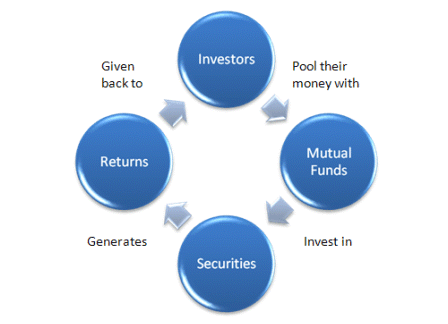For the smart options for mutual fund investment now the steps are essential. You need to be specific on this part. For that you need the best deal.
The ranking with the best funds you find on other sites is a misleading exercise because it doesn’t help you understand how to invest your money but it is a pure vanity metric that often hides many problems. If you are looking for a ranking because you are an advanced investor and you feel you do not need advice, you will hardly find it here.
Is it worthwhile or not relying on this strategy to invest your money?
If, on the other hand, you are interested in understanding if it is worthwhile to invest in funds, keep reading because there is so much information useful for you.
Investing in funds often is not worthwhile
The mutual fund investment are most of the times a bloodbath to the detriment of the customer organized by the bank and management company, with the aim of putting your hands in your pockets even when the instrument does not makes them incapacitated.
It will seem a harsh opinion, which among other things contrasts with what your financial promoter will have told you, very interested; thanks to the generous commissions he will put in his pocket, to direct you towards this peculiar investment tool.
Unlisted actively managed funds : they are the worst because they are not traded on the stock exchange (consequently, they are less liquid for you) and have higher commissions without offering better returns than the market;
Actively managed listed funds: more transparent and liquid than the former, they often have entry and exit costs and management costs that are too high to justify returns in line with the markets;
Passive-managed funds or ETFs: these are the ones I prefer because there is no management company that tries to beat the market but the fund simply replicates the reference benchmark. You can learn more about this in the article where I explain how I invest .
After that, let’s go ahead: below I offer you 5 tips for investing in mutual funds , giving you some tips also and not only to recognize those who, in a frankly bleak landscape, could actually improve the composition of the portfolio.
Funds almost never perform better than market benchmarks
When you are buying shares in a mutual fund, you are trying to beat the market, otherwise you would rely on particularly differentiated indices or ETFs to bring an aligned return on this or that market.
Things unfortunately are not always the case, in the sense that in 90% of the cases the mutual funds perform worse than the benchmarks of the reference market. Yes, although there is a management company of sapientini and pundits, ready, they say, to intercept trends first and foremost.
The chatter, however, as is often repeated, is zero, and it is to the rates of return on investment that we must look: the returns are, and it is precisely the paper that sings, lower than the market averages, even before inserting into the equation the substantial management commissions that this type of tools incorporate.
Differentiates, but only on solid markets
The differentiation is a concept as basic as often misunderstood accomplices’ also conflicting information that comes to those who are not exactly in the industry.
To differentiate means to have a portfolio made up of different securities by geographical origin, risk profile and sector. It is of little use to differentiate on different energy raw materials, on shares of the same sector (banking, tech, etc.), or between bonds of countries that have broadly the same trend. The differentiation must first of all be true, and protect us from the collapses of the sector. Secondly it must be solid, because in the name of differentiation we cannot include rubbish in our portfolio. The funds in this sense can certainly help us, provided we know what and why to choose.
Often the differentiation offered by mutual funds is only apparent, in the sense that portfolios of securities from the same sector are offered, which never protect us from the risks that an unsorted portfolio has inherent in its construction. Before choosing a good mutual fund, check the composition and the rules that the management company has given itself in order to change the portfolio itself.
ETFs differentiate and cost less
ETFs can be a good compromise because they offer you:
The replication of indices that by their nature are already differentiated: think of an ETF that has a predominant component of the US stock market – it will have in the reference basket tech, heavy industrial, energy, financial and banking stocks;
Extremely low commissions, which in some cases are even 90%, lower than those that are practiced by mutual funds;
The possibility of selling the shares through regulated markets, or through markets those are identical to the stock exchange, for greater liquidity and greater ease of management.
By choosing ETF vouchers, you can have all the positive sides of mutual funds, without exposing yourself to the most common problems that concern the management of actively managed funds.







































